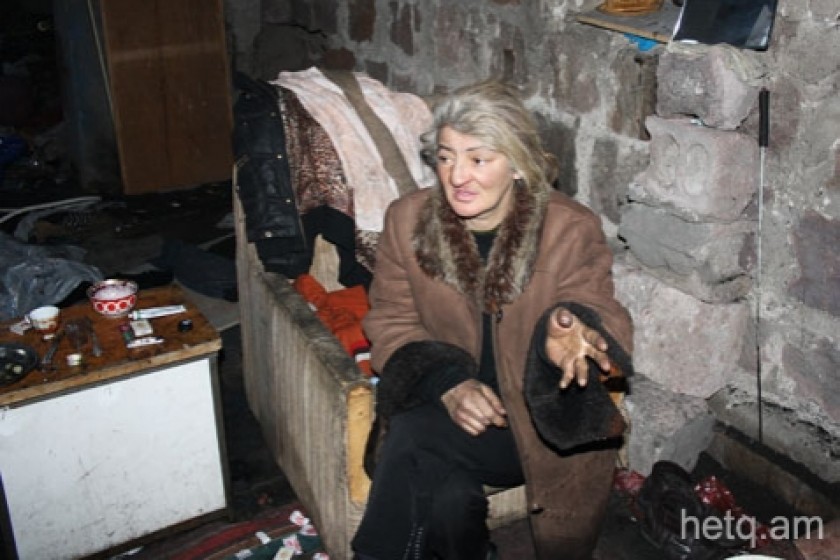
15 Years on the Street: Nurse Nouneh Has a Job But Can't Afford Rent
The old boiler house adjacent to the Armenian Police Kentron division for many years served as a shelter for the homeless. However, ahead of the launch of the new police building and the president's visit, large numbers of homeless people were evacuated from the area.
I walk alongside the police station toward the dilapidated boiler house. Someone comes out, and I ask if there's anyone inside. He says yes, and then asks, "Are you going to see Nouneh?" I don't know Nouneh, but I say yes. "She's not well, Nouneh; she's lying down," he replies and describes how to get to her "bedroom".
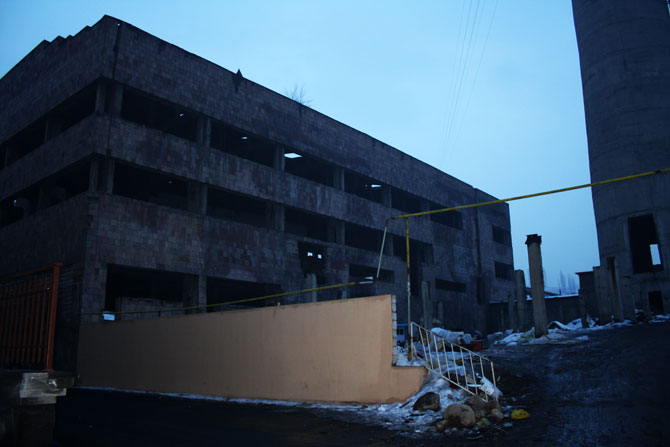
 It's damp inside the boiler house. Moreover, it's filled with trash and the walls are crumbling. There's the illusion of being neither indoors nor sheltered from the wind. I notice someone trying to light a cigarette. I approach him and ask for Nouneh. "She's here," he says and points to a figure submerged in the bed, covered in blankets and practically invisible.
It's damp inside the boiler house. Moreover, it's filled with trash and the walls are crumbling. There's the illusion of being neither indoors nor sheltered from the wind. I notice someone trying to light a cigarette. I approach him and ask for Nouneh. "She's here," he says and points to a figure submerged in the bed, covered in blankets and practically invisible.
Nouneh lifts her head, stands up, and tries to look presentable. "I was just sleeping. I came from work and I was tired," she says, confused.
She explains that she works as a cleaner in the police station next door, receiving a monthly salary of 16,000 AMD (less than $40 USD). But she can't rent an apartment with that money, which is why she's sought shelter in the boiler house for 8 years, though she's been on the street for 15 years.
Nouneh Mkrtchyan says she's from the border village of Vahan in Gegharkounik province. Her son lives there but her chronic rheumatism which causes her legs to swell from village life prompted her to come to the capital.
Nouneh is a nurse by profession. She worked at the first children's hospital and at Armenia Republican Medical Center. She also worked privately, making house calls, administering needle injections, and tending to patients. Then she worked at various trade workshops.
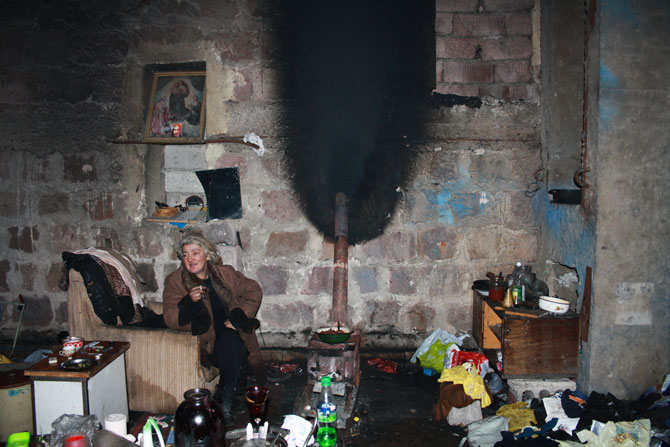
"I don't want anything, just for there to be a workshop where I can work. I make car seats; I do furniture upholstery — if there's a small workshop, I'll do it," she says, then adds: "A tradesman is [only] hungry until noon. I learned the trade from my father. I do everything: I also build walls." She says that her son doesn't adapt to this life of hers, but she's already acclimatized to it. "I know that it's no longer possible to do anything. It's all a lie."
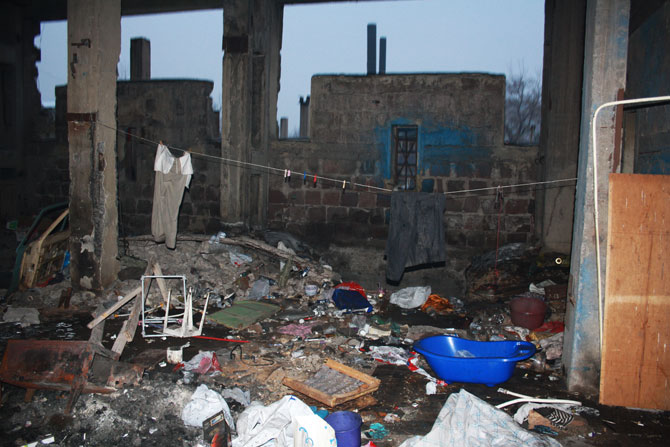
The man standing by the bed is Ishkhan, her male companion. They live there together. "I have 3 grandchildren; you look a lot like my Mane," he says. Ishkhan, by his account, has a family; in the past, he worked as a storekeeper in a bread factory and had a house, but he sold it to pay off his debts and ended up on the street. "Come this way," he cautions. "Yesterday, the snow fell; today it might fall on your head."
The rats run amok. Nouneh says there are many of them — sometimes she feeds them bread.
They've placed a small heater to stay warm. They burn whatever they find. Nouneh's hands look like those of a stoker's — callous, blackened and injured. She notices me staring at her hands. "Wait, let me go wash up; I came from work," she says, continuing to knead her hands and not making a move to leave. She then begins to squash also her eyes.
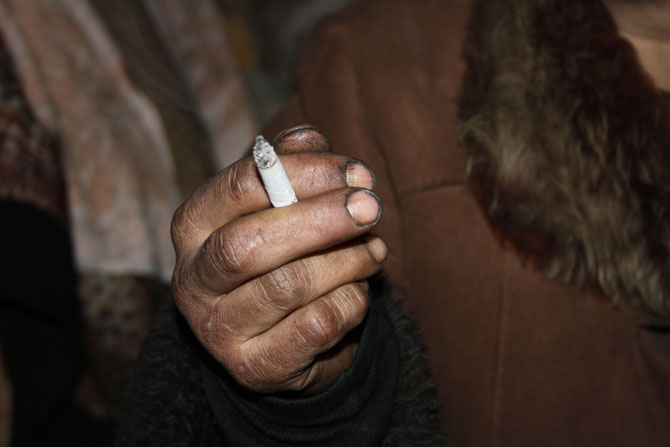
On the heater that doubles as a stove, there's a bowl of partly cooked beans covered in soot from whatever is used as fuel (car tires, shoes, and so on). Ishkhan and Nouneh don't complain; they say they have food. "Thank god, we work and we buy everything," he says.

"I'm ashamed that you've come to this dirty place, but if you can, find a dormitory," says Ishkhan and leaves. He returns a short while later — with a bottle of vodka. He fills his glass and continues to tell his story. He ends with a toast to himself: "Mercy be to Ishkhan."
 Videos
Videos Photos
Photos




Write a comment